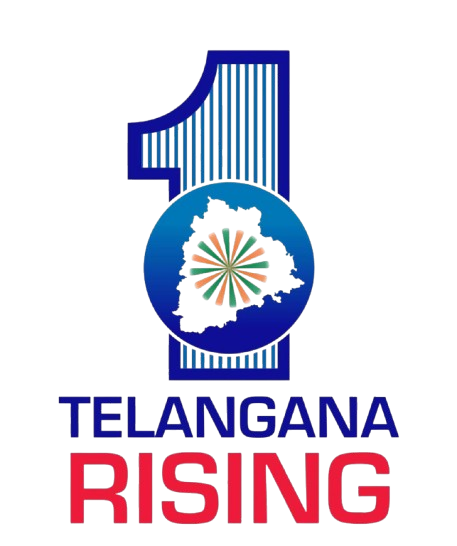BTECH EEE Program Educational Objectives (PEOs)
|
PEO-1 |
To impart knowledge in the field of Electrical and Electronics Engineering & basic sciences to students so as to make them to cope up with global challenges in Power sector. |
|
PEO-2 |
To prepare student as a versatile professional Engineers in contributing to society in different dimensions. |
|
PEO-3 |
To prepare students as competent Professional Engineers with ability to work as individuals or as team members or as leaders to alleviate the real world problems. |
|
PEO-4 |
To furnish students with creative thinking and critical reasoning skills for lifelong learning |
.
BTECH EEE Program Specific Outcomes (PSOs)
|
PSOs Name |
Program Specific Outcomes Statements |
|
PSO-1 |
Apply the fundamentals of Electrical Engineering knowledge acquired from Electrical Circuits, Electrical Machines, Control Systems, Measurements to solve complex problem pertaining to production and maintenance of industries |
|
PSO-2 |
Apply the fundamentals of Electrical Engineering knowledge acquired from Engineering Mathematics, Engineering Chemistry, Engineering Physics, Electrical Circuits, Simulation Software, Electronic Circuits, Controls Systems, Power Electronics to be able to design models for analysis of Electrical Systems. |
|
PSO-3 |
Apply the fundamentals of Electrical Engineering knowledge acquired from Power System operation and Control, Switch Gear and Protection, Generation, Transmission and distribution to solve complex problems pertaining to power industry. |
BTECH EEE Program Outcomes (POs)
|
Engineering Graduates will be able to: |
|
PO-1 |
Engineering knowledge: Apply the knowledge of mathematics, science, engineering fundamentals, and an engineering specialization to the solution of complex engineering problems. |
|
PO-2 |
Problem analysis: Identify, formulate, review research literature, and analyze complex engineering problems reaching substantiated conclusions using first principles of mathematics, natural sciences, and engineering sciences. |
|
PO-3 |
Design/development of solutions: Design solutions for complex engineering problems and design system components or processes that meet the specified needs with appropriate consideration for the public health and safety, and the cultural, societal, and environmental considerations. |
|
PO-4 |
Conduct investigations of complex problems: Use research-based knowledge and research methods including design of experiments, analysis and interpretation of data, and synthesis of the information to provide valid conclusions. |
|
PO-5 |
Modern tool usage: Create, select, and apply appropriate techniques, resources, and modern engineering and IT tools including prediction and modeling to complex engineering activities with an understanding of the limitations. |
|
PO-6 |
The engineer and society: Apply reasoning informed by the contextual knowledge to assess societal, health, safety, legal and cultural issues and the consequent responsibilities relevant to the professional engineering practice. |
|
PO-7 |
Environment and sustainability: Understand the impact of the professional engineering solutions in societal and environmental contexts, and demonstrate the knowledge of, and need for sustainable development. |
|
PO-8 |
Ethics: Apply ethical principles and commit to professional ethics and responsibilities and norms of the engineering practice. |
|
PO-9 |
Individual and team work: Function effectively as an individual, and as a member or leader in diverse teams, and in multidisciplinary settings. |
|
PO-10 |
Communication: Communicate effectively on complex engineering activities with the engineering community and with society at large, such as, being able to comprehend and write effective reports and design documentation, make effective presentations, and give and receive clear instructions. |
|
PO-11 |
Project management and finance: Demonstrate knowledge and understanding of the engineering and management principles and apply these to one’ swork, own as a member and Leader in a team, to manage projects and in multidisciplinary environments. |
|
PO-12 |
Life-long learning: Recognize the need for, and have the preparation and ability to engage in independent and life-long learning in the broadest context of technological change.
|
MTECH EPS Program Educational Objectives (PEOs)
|
PEO-1 |
To produce Post Graduate (PG) Engineers who are capable of working with changing needs of modern electrical power systems. |
|
PEO-2 |
To produce Post Graduate (PG) Engineers who are capable of contributing for Research and Development in the area of power system operation and control. |
|
PEO-3 |
To produce post graduate (PG) engineers who are able to impart the knowledge and skills to analyze, design, test and implement various software and be engaged in life - long learning. |
MTECH EPS Program Specific Outcomes (PSOs)
|
PSO-1 |
Students should be able to work with latest developments in the area of power system optimization, operation and control. |
|
PSO-2 |
Students should be able to follow the ethical principles and managerial skills as a professional to discharge social, economical and environmental responsibilities. |
MTECH EPS Program Outcomes (POs)
|
PO-1 |
An ability to independently carry out research /investigation and development work to solve practical problems |
|
PO-2 |
An ability to write and present a substantial technical report/document |
|
PO-3 |
Students should be able to demonstrate a degree of mastery over the area as per the specialization of the program. The mastery should be at a level higher than the requirements in the appropriate bachelor program |
|
|

